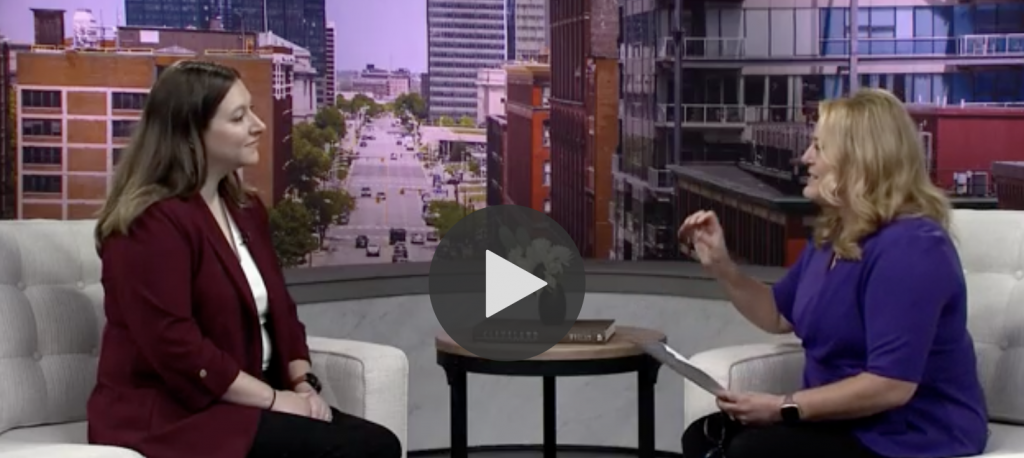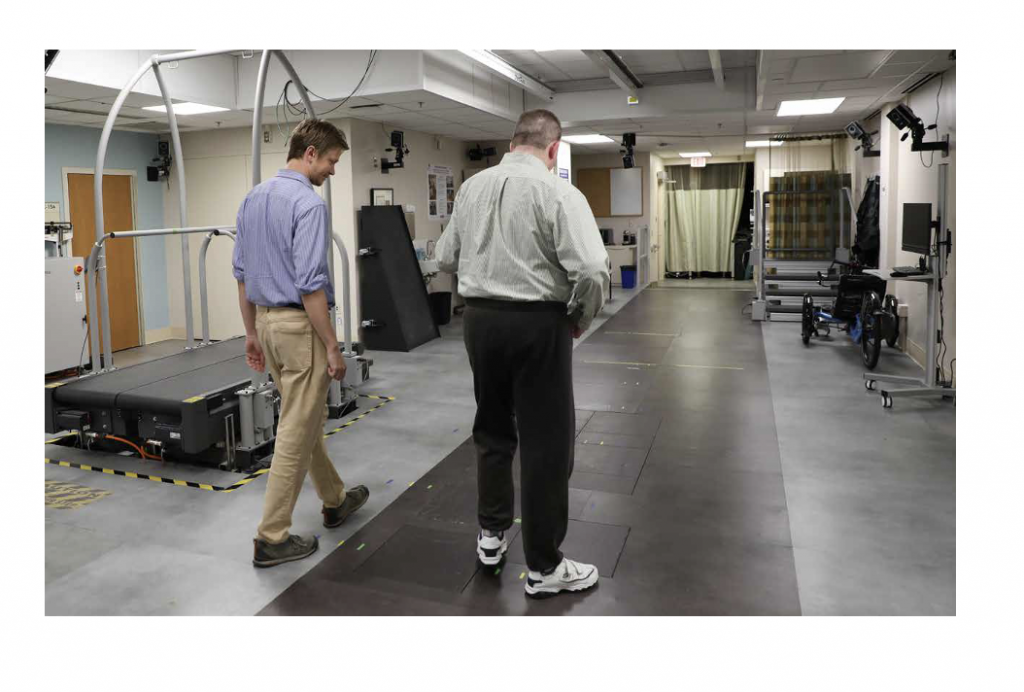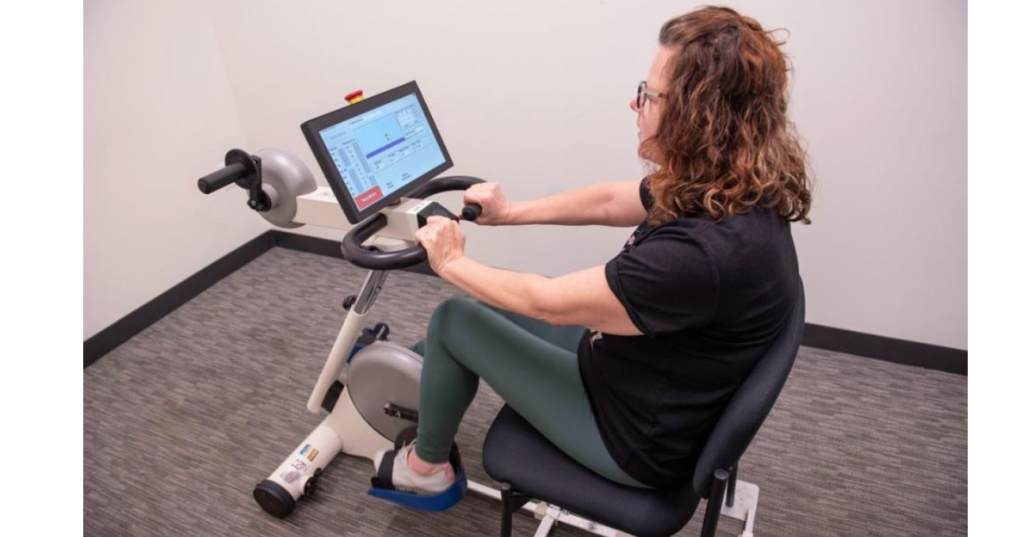Visit our labs (virtually) to see an overview of Functional Electrical Stimulation (FES) research. If you would like to set up a meeting with any investigator about their work or possible collaboration, please reach out to info@FEScenter.org
ReHAB – Reconnecting the Hand and Arm to the Brain
A team of biomedical pioneers at the Cleveland FES Center poised to take the next step in developing a platform to allow reanimation of paralyzed limbs under direct control of the brain.
A. Bolu Ajiboye, PhD
Investigator, Cleveland FES Center
Elmer Lincoln Lindseth Associate Professor of Biomedical Engineering, Laboratory for Intelligent Machine-Brain Systems (LIMBS), Case Western Reserve University
Research Associate, Louis Stokes Cleveland VA Medical Center
Dr. Ajiboye’s main research interest is in the development and control of brain-computer-interface (BCI) technologies for restoring function to individuals who have experienced severely debilitating injuries to the nervous system, such as spinal cord injury and stroke.
Andrew Cornwell, PhD
Director of Strategic and Industrial Collaborations, Cleveland FES Center
Biomedical Engineer, Louis Stokes Cleveland VA Medical Center
Adjunct Assistant Professor, Department of Biomedical Engineering, Case Western Reserve University
As the FES Center’s primary contact for external collaborations, Dr. Cornwell’s objective is to strengthen existing and forge new relationships with groups outside the FES center to build visibility and impact.
Fatema Ghasia, MD
Investigator, Cleveland FES Center
Assistant Professor of Ophthalmology, Cleveland Clinic Lerner College of Medicine
Staff, Cleveland Clinic, Pediatric Ophthalmology and Adult Strabismus
Director, Ocular Motility Laboratory, Cole Eye Institute
Research Appointment, Daroff and Dell’Osso Ocular Motility Laboratory, Louis Stokes Cleveland VA Medical Center
Dr. Ghasia’s laboratory’s work is broadly focused on understanding the role of abnormal neural circuits in strabismus and amblyopia and apply novel strategies for their treatment. The laboratory based at the Cleveland Clinic focuses on research techniques involving visual psychophysics and eye movement data acquisition and analysis using portable as well as a laboratory-based video-oculography system in children.
Svetlana Pundik, MD, MSc
Investigator, Cleveland FES Center
Stroke Neurologist and Medical Director of the Stroke Program, Louis Stokes Cleveland VA Medical Center
Assistant Professor, Department of Neurology, Case Western Reserve University
School of Medicine
Dr. Pundik’s lab focuses on utilizing functional neuroimaging to discern substrates of movement control and movement relearning-related plasticity in the healthy vs. post-stroke brain to draw upon their significance for rehabilitation.
Dawn Taylor, PhD
Investigator, Cleveland FES Center
Assistant Professor of Neuroscience, Cleveland Clinic
Research Scientist, Louis Stokes Cleveland VA Medical Center
Bioscientific Staff, Department of Orthopaedics MetroHealth Medical Center
Dr. Taylor’s research focuses on allowing paralyzed individuals to use their natural thoughts of movement to control their assistive devices. Recording options include arrays of tiny microelectrodes inserted a few millimeters into the cortex, thin sheets of electrodes that sit on top of the brain, electrodes embedded in the skull, and electrodes placed either on or just beneath the scalp
Dennis Bourbeau, PhD
Investigator, Cleveland FES Center
Biomedical Engineer, Louis Stokes Cleveland VA Medical Center
Staff Scientist, MetroHealth Medical Center Assistant
Professor, Physical Medicine and Rehabilitation, Case Western Reserve University
Dr. Bourbeau’s research focuses on developing devices that use electrical stimulation to restore pelvic autonomic function lost to SCI or other neurological disorders. Such devices would provide alternatives to surgeries or drugs.
Elizabeth Hardin, PhD
Investigator, Cleveland FES Center
Biomedical Engineer, Louis Stokes Cleveland VA Medical Center
Dr. Hardin’s research interests lie in studying human walking performance and stability, and in the intrinsic and extrinsic criteria that influence them. These criteria include muscle strength and endurance, joint stiffness, proprioception, and anthropometry as well as neural and conventional prostheses, bracing and footwear properties.
Kevin Kilgore, PhD
Associate Director of Technology, Cleveland FES Center
Professor, Case Western Reserve University
Biomedical Engineer, Louis Stokes Cleveland VA Medical Center
Program Manager, Department of Orthopaedics, MetroHealth Medical Center
Dr. Kilgore’s research interest is in the application of functional electrical stimulation (FES) to provide disabled individuals with increased independence and improved quality of life through implanted FES systems to provide movement after spinal cord injury, and exploring various methods of electrically blocking nerve conduction to reduce spasticity in stroke or block pain in peripheral nerve injury.
Michael Moffitt, PhD
Investigator, Cleveland FES Center
R&D Director, Neuromodulation Research and Advanced Concepts, Boston Scientific
Associate Professor, Biomedical Engineering, Case Western Reserve University
Dr. Moffitt is a biomedical engineer with particular interest in modulation of neural systems. He has more than 15 years of industry experience in the medical device field, and has focused on Spinal Cord Stimulation and Deep Brain Stimulation systems.
Aasef Shaikh, MD, PhD
Investigator, Cleveland FES Center
Neurologist and Neuroscientist, Daroff-Dell’Osso Ocular Motility Laboratory, Louis Stokes Cleveland VA Medical Center
Neurologist, University Hospitals Cleveland Medical Center
Assistant Professor, Neurology, School of Medicine Case Western Reserve University
Dr. Shaikh’s research focuses on the application of control systems engineering to approach complex disorders of the vestibular system, eye movements, head movements, gait and balance.



